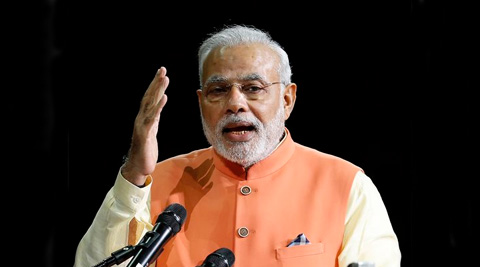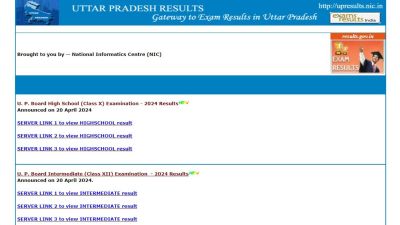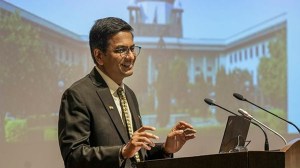- India
- International
Fifth Column: Do we hear a death knell?
Democratic feudalism has reduced our smaller states to fiefdoms over which a handful of families lay claim.
 The Prime Minister did well to speak out against ‘vanshvaad’, but did he notice that the daughters of two of the BJP’s most important leaders in Maharashtra were among his candidates?
The Prime Minister did well to speak out against ‘vanshvaad’, but did he notice that the daughters of two of the BJP’s most important leaders in Maharashtra were among his candidates?
What pleased me most about the elections whose results come today has been almost ignored. Reams have been written on different aspects of the campaign, but political pundits have ignored Prime Minister Narendra Modi’s emphasis on ending dynastic politics. This could be the first time a major political leader has openly attacked what is today a fundamental principle of Indian democracy. This is: If my Daddyji or Mummyji is a political leader, it is my birthright to inherit a constituency. This pernicious sense of entitlement has trickled down to the level of village councils. And encouraged members of former royal families to enter politics in droves. Feudalism is a political idea they understand better than anyone else, so why not?
Democratic feudalism has reduced our smaller states to fiefdoms over which a handful of families lay claim. Haryana is one of them, so the Prime Minister was right to point out during the campaign that it was time to rid the state of the stranglehold of four families. If the exit polls are correct and the BJP forms the next government there, for the first time ever, then it must ensure that it practices what Narendra Modi preaches and put an end to dynastic succession.
The BJP’s organisational structure in states like Maharashtra and Uttar Pradesh has been weakened badly by its leaders being infected with the disease of dynastic democracy that spread across the country from the Congress. So prevalent was the practice in the past decade when the Sonia Gandhi-Manmohan Singh government ruled that Sonia loyalist Renuka Chowdhury said on national television that politicians’ children had more right to be in politics than anyone “because we train them for it”. Nearly all younger Congress MPs in the last Lok Sabha came from political families and nearly all of them lost, which means that the average voter has begun to reject political dynasties.
This is very good news. Not just because feudal ideas of succession weaken democracy at its most basic level, but because one of the main reasons why political leaders bring their progeny into politics is to ensure succession to the family business. A career in politics has become the easiest way to make money very quickly and with minimum skill and effort. Many of the political heirs that we now describe as ‘leaders’ are men and women who have been unable to hold down a job in normal life. Yet despite this, no sooner do they enter ‘public service’ than their humble homes grow quickly into mansions and their garages fill up with very expensive foreign cars. It is only when they get on the wrong side of a government, like J Jayalalithaa did long ago, that the income tax department conducts a raid and discovers assets that are not commensurate with the earnings of a public servant.
Corruption in public life could come down dramatically if political parties discouraged the practice of sons, daughters, wives and girlfriends being handed tickets at election time. The Prime Minister did well to speak out against ‘vanshvaad’, but did he notice that the daughters of two of the BJP’s most important leaders in Maharashtra were among his candidates? The daughter of Gopinath Munde thinks so highly of herself that she suggested that she would be the best person to become Maharashtra’s next chief minister if the BJP forms the next government. For this alone she needs to be counted out.

Maharashtra offers us an example of how even big states can be taken over by a handful of political families. The Congress and the Nationalist Congress Party (NCP) are awash with political heirs and heiresses of a singularly mediocre genre. This could be one reason why voters here seem more than ready for ‘parivartan’ and ‘vikas’.
Democratic feudalism brings with it not just corruption, but exclusivity. So hundreds of thousands of men and women who deserve to be given a chance to enter politics are deprived of it because precedence is given to some unworthy heir. The result is that Parliament has, in recent years, been turned into what a political friend of mine once described as “a very exclusive diners club”. If there is to ever be real change in India, then this must change.
Parliament needs to be again that hallowed place to which only those with a real wish to serve India and her people have entry. The Prime Minister did well to make ‘vanshvaad’ an important part of his campaign, so if the exit polls are right and the BJP forms governments in Maharashtra and Haryana, let him start acting on what he has said. If the BJP makes it clear that it is going to actively discourage dynastic democracy, it will attract people with a real record in public service. The road to ‘parivartan’ and ‘vikas’ will become easier.
Follow Tavleen Singh on Twitter @tavleen_singh
EXPRESS OPINION
Must Read
More Explained
Apr 20: Latest News
- 01
- 02
- 03
- 04
- 05










































